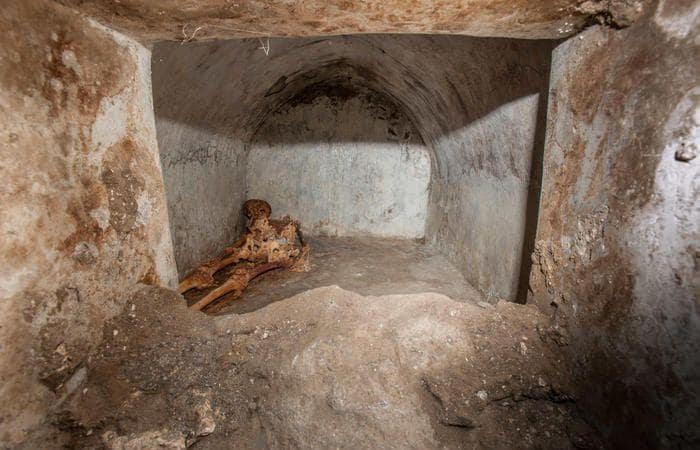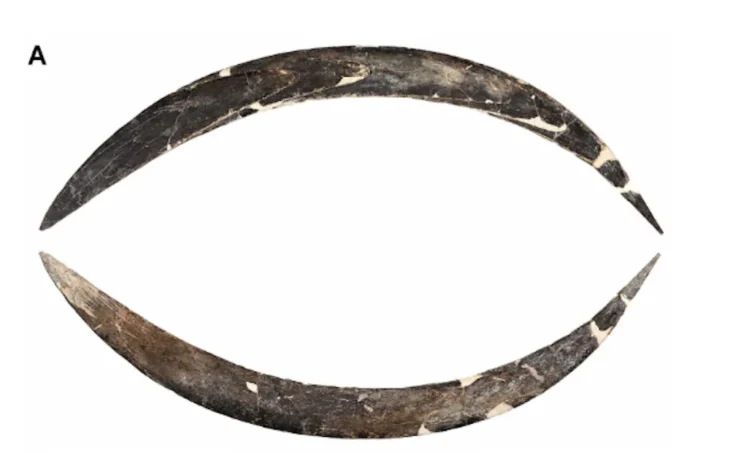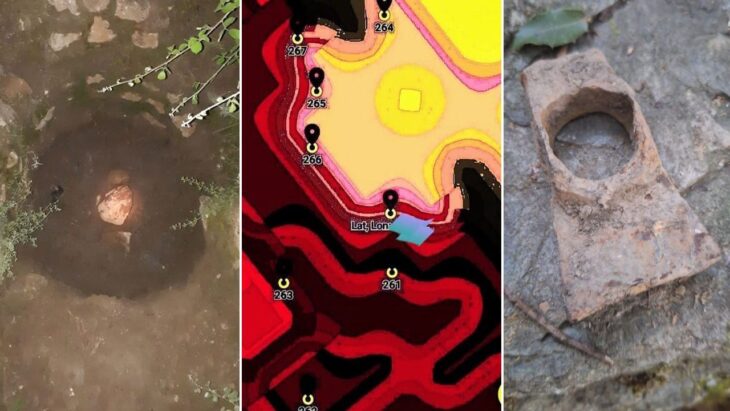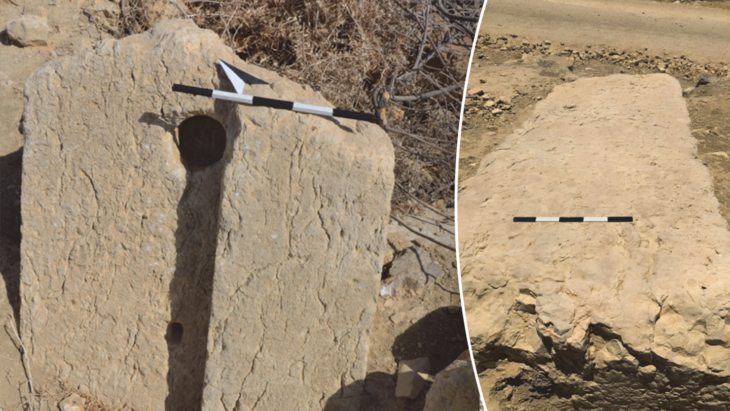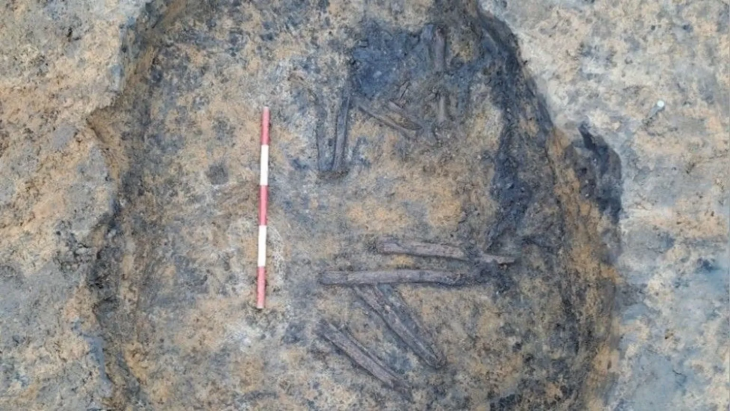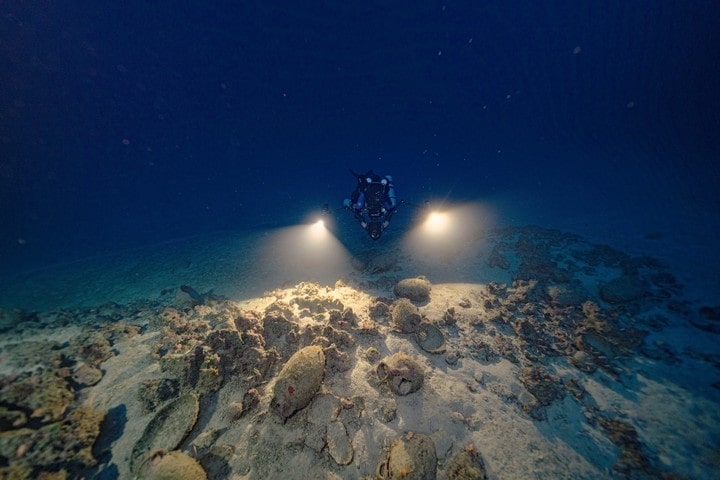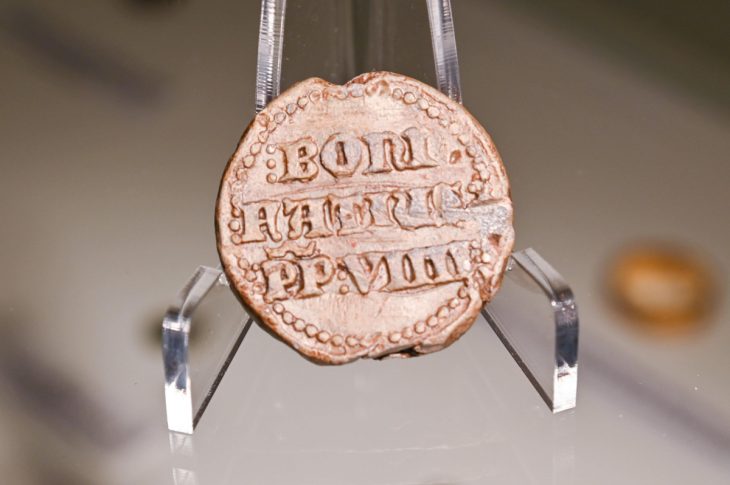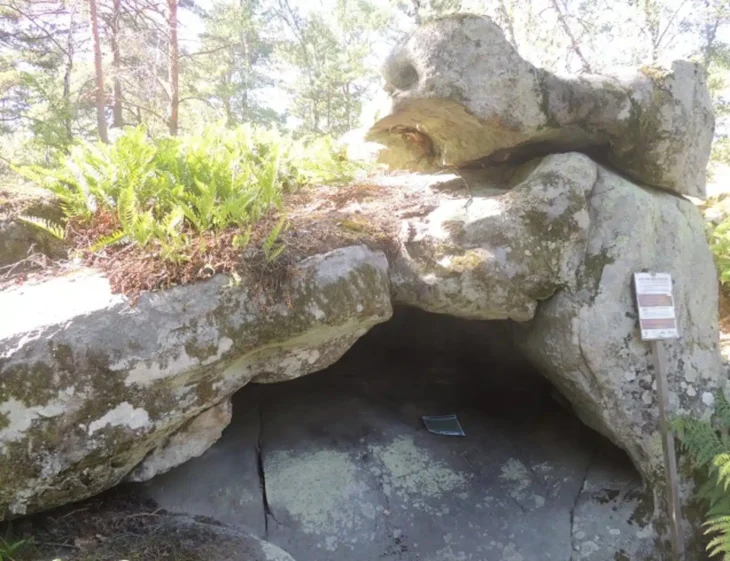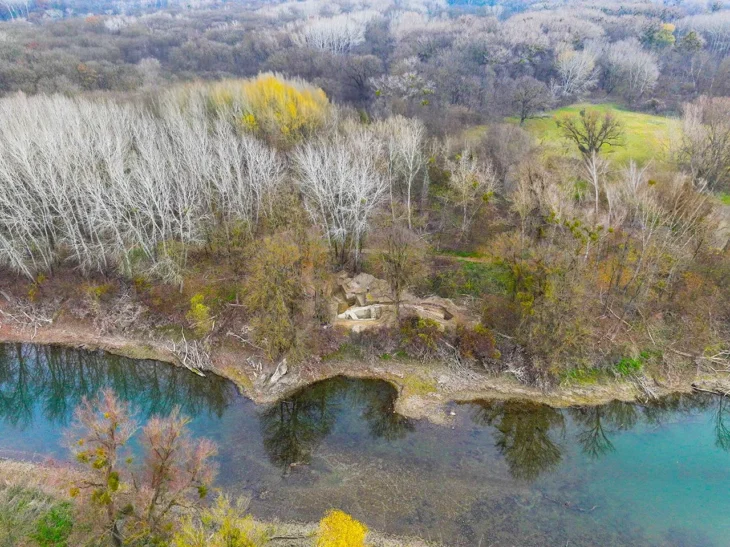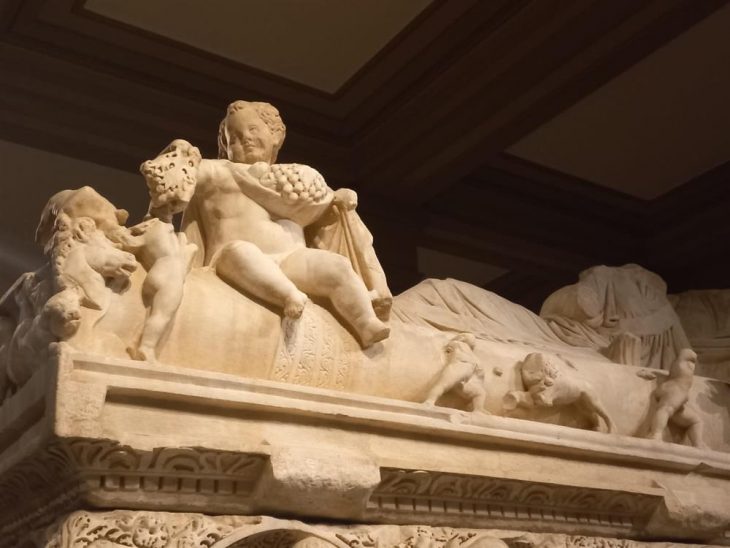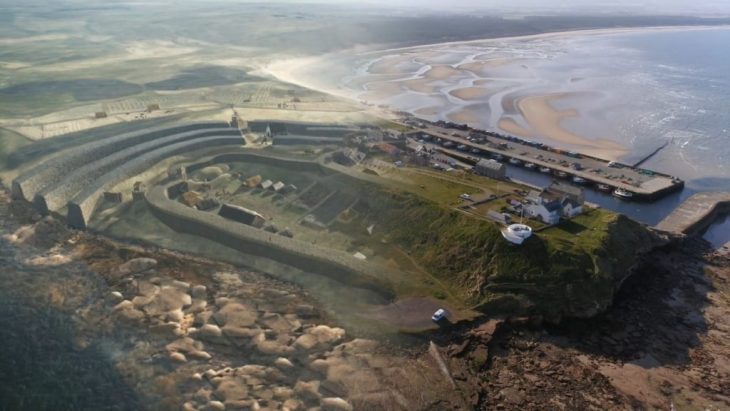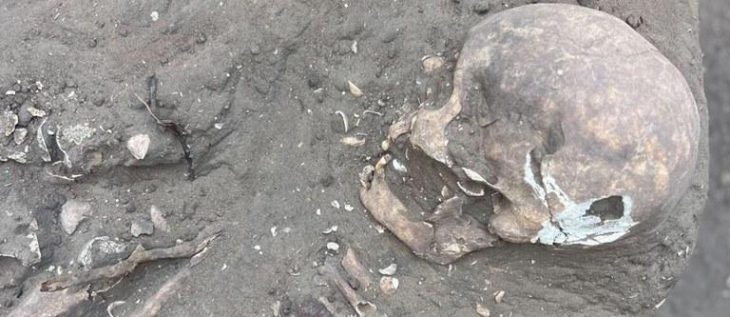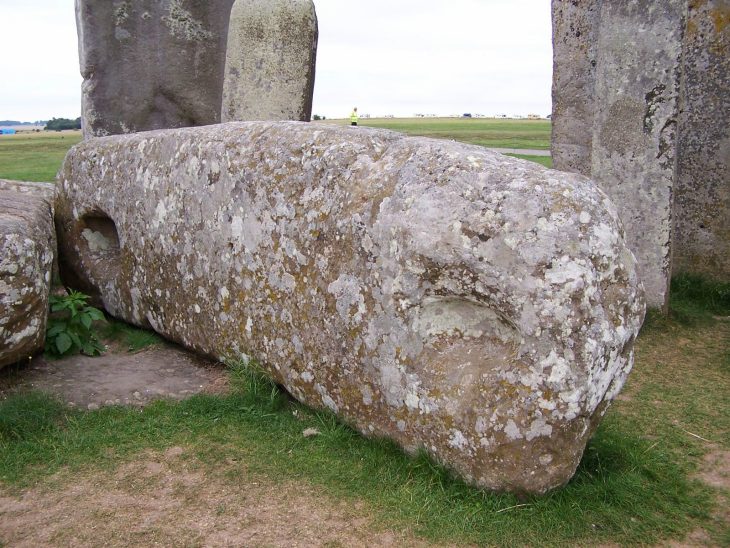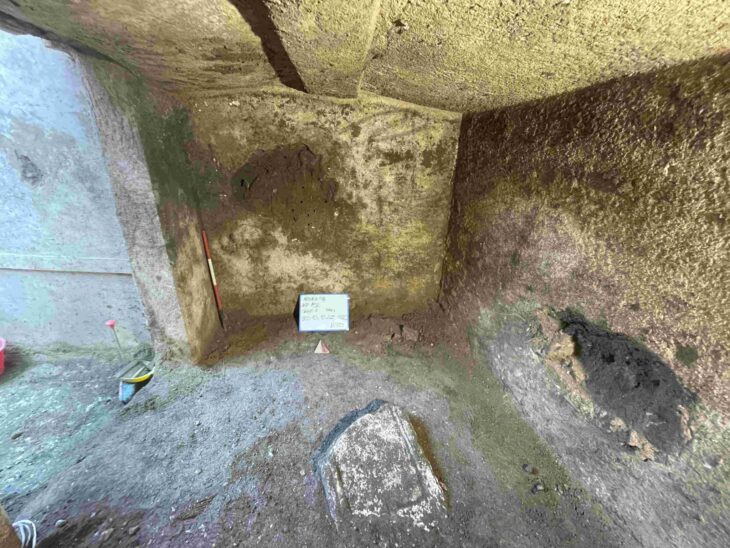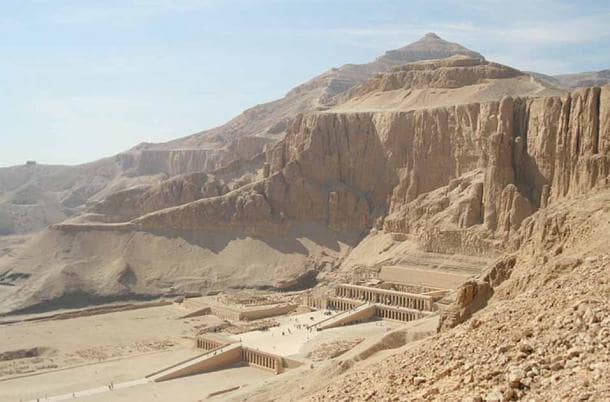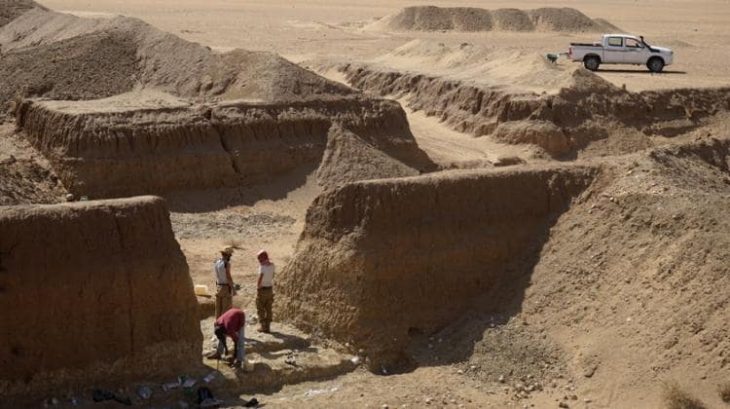A semi-mummified skeleton was discovered in the Porta Sarno necropolis, which is located east of Pompeii’s city center and is not yet open to the public.
Officials stated Tuesday that a “unique” tomb holding a semi-mummified body has been discovered at Pompeii. The body dates back to a time when deceased remains in the old Roman city near Naples were routinely burned.
A highly unusual tomb, enclosure, with a front adorned with green flora on a blue backdrop and a burial chamber.
Among those discovered is a marble inscription, which provides the first evidence that it was also repeated in Greek in the Roman colony’s theaters, at least in the last decades before the eruption of 79 AD.
Inscription on the tomb, its owner, Marcus Venerius Secundio, assisted in the organization of Greek shows at Pompeii. It was the first proof, according to experts, that Greek was employed alongside Latin.
📣 Our WhatsApp channel is now LIVE! Stay up-to-date with the latest news and updates, just click here to follow us on WhatsApp and never miss a thing!!
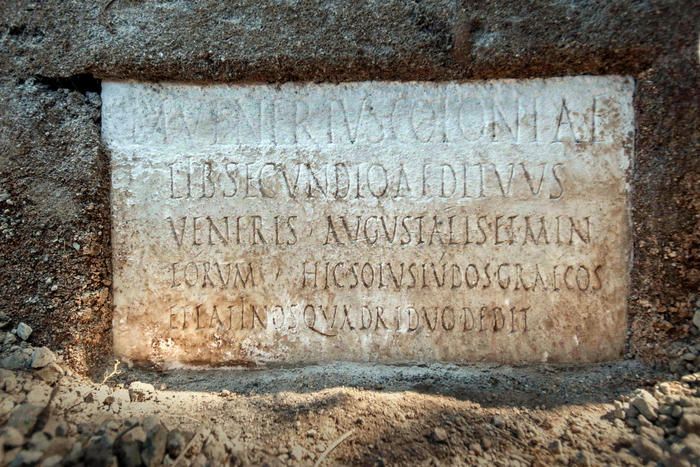
The tomb, which dates from the last of Pompeii’s life, belongs to Marcus Venus Secundio, a freedman who served as the keeper of the Temple of Venus, a very important temple because the Romans named the city after Venus.
Italy 24 news said, The latest remarkable discovery of the Archaeological Park of Pompeii, brought to light owing to an excavation effort performed in collaboration with the European University of Valencia, is once again a fascinating and full of mystery narrative.
A find on which an interdisciplinary team of experts is working and from which much is expected – as Park Director Gabriel Zuchtriegel and University of Valencia professor Llorenç Alapont point out – also for the conservation conditions of the deceased, who appears partly mummified, with white hair on his head, one ear partially preserved, and small fragments of the fabric that encircled it.
“One of the best-preserved skeletons of the ancient city”, Zuchtriegel told ANSA. In fact, in short, a gold mine of scientific data.
“Pompeii never ceases to amaze and confirms a history of redemption, an international model, a place where research and new excavations have returned” applauds the Minister of Culture Dario Franceschini, thanking “the many professionals of cultural heritage who with their work do not stop giving the world extraordinary results that are a source of pride for Italy,” he said.

